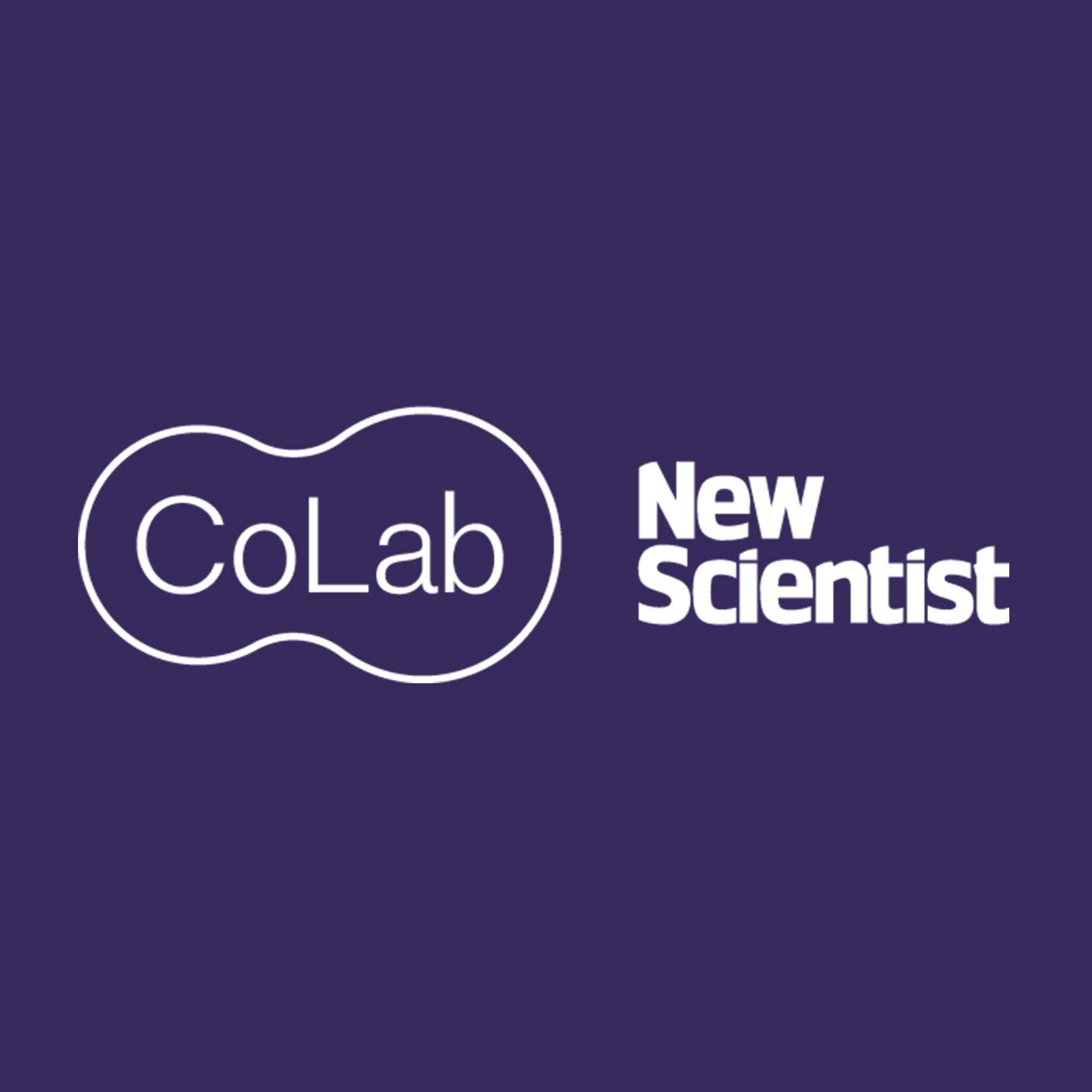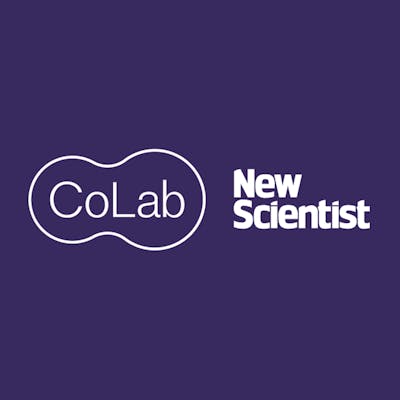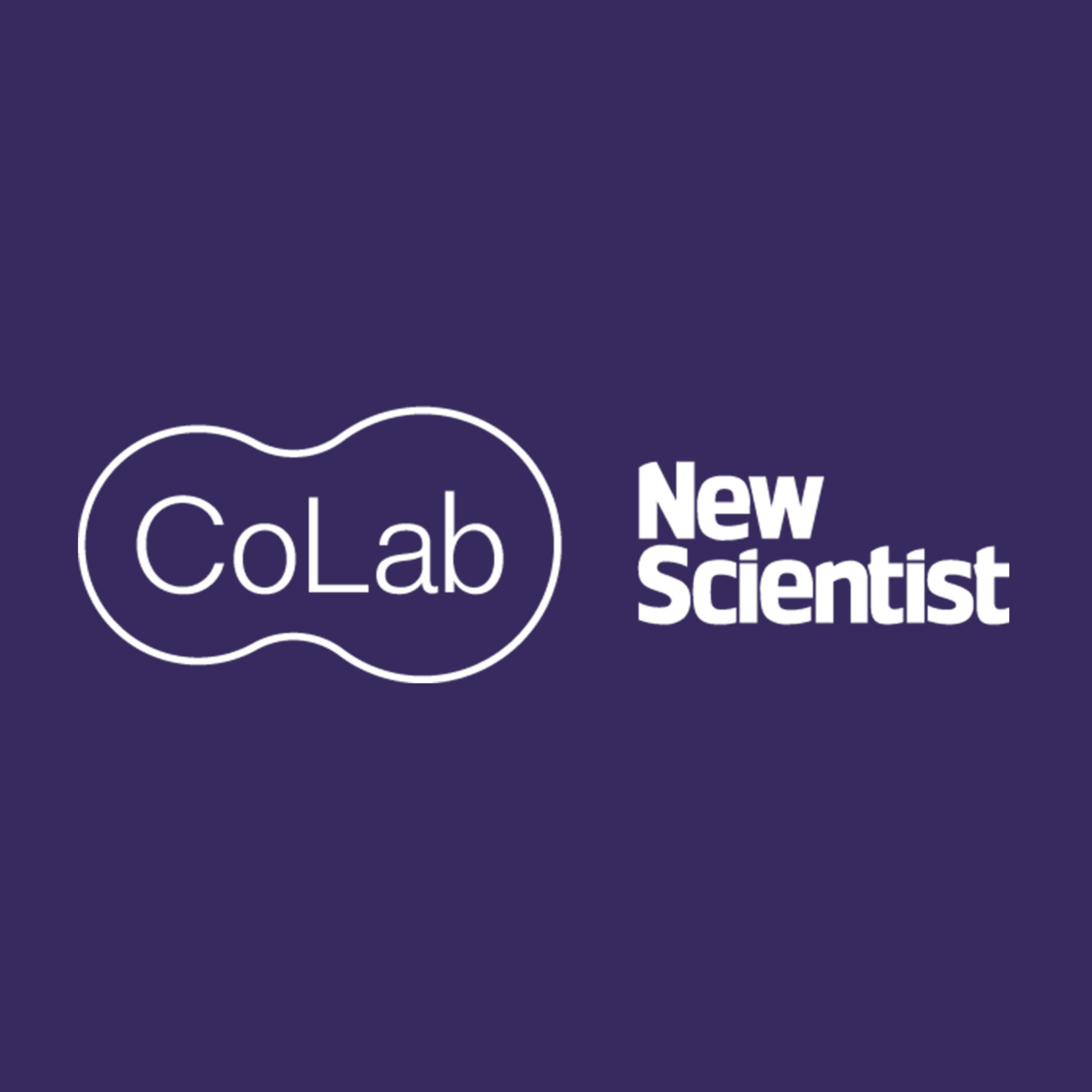Discover New Scientist Colab Podcasts
New Scientist Colab Podcasts

New Scientist Colab Podcasts
Author: DMG Media
Subscribed: 14Played: 59Subscribe
Share
© DMG Media
Description
Podcasts for the insatiably curious, produced by New Scientist in collaboration with carefully selected external parties.
Hosted on Acast. See acast.com/privacy for more information.
13 Episodes
Reverse
Imagine humans one day living and working on the ocean floor. Aquanauts in subsea habitats, surrounded by ocean creatures, discovering new secrets about our planet. This might sound like science fiction, but DEEP is already making this a reality.
With the recent launch of its subsea habitat Vanguard, DEEP is pushing forward with its promise to make humans aquatic. An engineering company pushing the boundaries of what’s possible, DEEP exists to radically advance how humankind can access, explore and inhabit underwater environments.
In this episode, Sophie Bushwick speaks to DEEP’s Chief Technology Officer, Norman Smith and Director of Habitat Operations, Roger Garcia.
Together they take us on a tour of Vanguard, from its cosy living area with a viewport to the ocean realm, to the “moon pool” which serves as the entryway into the habitat. They discuss the scientific missions a habitat like this enables - like planet-saving coral reef restoration. And they explore the engineering that’s gone into making this possible, the pressures and joys of life as an “aquanaut” and how it feels to have sea creatures as your neighbours.
This is a New Scientist CoLab production, sponsored by DEEP.
Your host is Sophie Bushwick.
Find out more here.
Learn more about your ad choices. Visit megaphone.fm/adchoices
The UK’s energy system is undergoing a quiet revolution. As we move away from fossil fuels towards a cleaner, more flexible, and electrified future, Octopus Energy is helping to turn the traditional power grid on its head.
In this episode of New Scientist CoLab, Justin Mullins is joined by Kieron Stopforth, Head of Flexibility at Octopus Energy.
Kieron explains how the way we generate, store and use electricity is changing - and why your home, solar panels, and even your car could be part of the solution.
This is a New Scientist CoLab production, sponsored by Octopus Energy.
Your host is Justin Mullins. Find out more at newscientist.com/podcasts.
Learn more about your ad choices. Visit megaphone.fm/adchoices
Dementia is the UK’s leading cause of death, and one in three people born today will develop it in their lifetime. With numbers steadily rising, the need for effective treatments and improved dementia diagnosis is more urgent than ever.
Thankfully, recent advances in science mean we understand the diseases that cause dementia better than ever. There has never been a more exciting time in dementia research, and supporting some of the most pioneering work in this field is UK charity Alzheimer’s Society.
In this episode of the New Scientist CoLab podcast, Justin Mullins is joined by Richard Oakley, Associate Director of Research and Innovation at Alzheimer's Society.
Richard explores the latest breakthroughs in dementia treatment and promising areas of research. He discusses the latest technologies and trials that are bringing us closer to a better future for people living with dementia. And he discusses his belief that research, with time, can beat dementia.
This is a New Scientist CoLab production, sponsored by Alzheimer’s Society.
Find out more at newscientist.com/podcasts
Learn more about your ad choices. Visit megaphone.fm/adchoices
What does it take to tackle the world’s most complex diseases? For David Price, head of the Vertex Pharmaceuticals Oxford Research site, the motivation is deeply personal.
In this podcast from New Scientist CoLab, David shares his incredible journey and gives a detailed look inside Vertex, the company that pioneered patient-first drug discovery.
Learn about their unique serial innovation strategy, which focuses on treating the underlying cause of a disease, not just the symptoms. He also discusses how automation and robotics are transforming the lab and why talented students and interns represent an extraordinary future.
Sponsored by Vertex Pharmaceuticals.
Learn more about your ad choices. Visit megaphone.fm/adchoices
Meet a woman who works at the frontlines of global nuclear monitoring.
In this special series of New Scientist CoLab interviews, where we spotlight exceptional women driving progress in science, technology, engineering, and mathematics.
Jenny is the leader of AWE’s forensic seismology team and Lead UN Inspector for the Comprehensive Nuclear Test Ban Treaty Organisation, which carries out large-scale inspections across the globe.
She walks us through everything from what might prompt an inspection to what actually happens on the ground, highlighting just how complex these high-stakes missions are.
We explore:
● Jenny’s pioneering career at the intersection of science, security, and diplomacy
● What skills are needed to work in high-stakes, global environments
● Her advice for women looking to make a difference in STEM and international security
This series is proudly sponsored by AWE.
Your host is Claire Aisnworth.
For more podcasts in this series, head to newscientist.com/podcasts
Learn more about your ad choices. Visit megaphone.fm/adchoices
Hear an inspiring story of career transformation, leadership, and purpose-driven science.
In this special series of New Scientist CoLab interviews, we spotlight exceptional women driving progress in science, technology, engineering, and mathematics.
Lorna is a Senior Science Manager at AWE, a technology and security organisation supporting the UK's nuclear deterrent. She’s the Acting Group Leader of Defence Radiation Protection Services at AWE, leading a team of 71 specialists.
Lorna’s story is a reminder that STEM careers can begin in the most unexpected places as she shares her unconventional journey into science which began not in a laboratory, but in a classroom as a teacher.
We explore:
● Lorna’s bold career pivot from education to national defence science
● How she now delivers radiation protection for MOD operations
● The value of diverse backgrounds in STEM and her path
● And her advice for others considering non-traditional paths into science and engineering
This series is proudly sponsored by AWE.
Your host is Claire Aisnworth.
For more podcasts in this series, head to newscientist.com/podcasts
Learn more about your ad choices. Visit megaphone.fm/adchoices
Uncover 20 years of experience working in hydrodynamics, radiography and groundbreaking nuclear threat reduction projects.
In this special series of New Scientist CoLab interviews, we spotlight exceptional women driving progress in science, technology, engineering, and mathematics.
Stacey is Production Engineer at AWE, the technology and security organisation behind the UK’s nuclear deterrent. Today, she leads a team developing components for Astraea - the UK’s next-generation nuclear warhead programme.
We explore:
● Stacey’s remarkable two-decade journey through science and engineering
● The unique challenges of developing a new warhead without nuclear testing
● How Stacey’s team is innovating to meet the demands of the Comprehensive Nuclear-Test-Ban Treaty (CTBT)
● And why she is so passionate about advocacy for gender balance in STEM
This series is proudly sponsored by AWE.
Your host is Claire Aisnworth.
For more podcasts in this series, head to newscientist.com/podcasts
Learn more about your ad choices. Visit megaphone.fm/adchoices
A rare behind-the-scenes look at what it means to lead critical engineering work in one of the most secure and technologically advanced environments in the country.
In this special series of New Scientist CoLab interviews, we spotlight exceptional women driving progress in science, technology, engineering, and mathematics.
This episode is a deep dive into the world of high-stakes engineering, leadership, and innovation at the cutting edge of national security.
Helen is Group Leader for Engineering at AWE, a technology and security organisation supporting the UK's nuclear deterrent. She’s a Member of the Senior Leadership Team for the Astraea Programme, a once-in-a-generation project to develop the UK’s next nuclear warhead.
In this episode we explore:
● Helen’s career journey and path to senior leadership
● The common misconceptions about working in engineering
● How to balance family-life with a high-security, high-impact role
● And how AWE is championing diversity, inclusion, and opportunities for women in STEM
This series is proudly sponsored by AWE.
Your host is Claire Aisnworth.
For more podcasts in this series, head to newscientist.com/podcasts
Learn more about your ad choices. Visit megaphone.fm/adchoices
For more than 35 years, Gilead has been a leading innovator in the field of HIV, driving advances in treatment, prevention and cure research. These advances have transformed the outlook for people affected by HIV worldwide. In parallel, Gilead’s focus on catalytic collaborations at the global, national and local levels have helped to address the unmet needs of a wide range of individuals and communities.
Jared Baeten is a physician, epidemiologist and head of R&D at Gilead Sciences who has spent decades working in partnership with collaborators around the world to help overcome the HIV epidemic. In this episode he discusses:
The current landscape of HIV research
Optionality and choice in HIV treatment and care
Beyond the lab: education, access and barriers to care
Achieving the collective vision of ending the HIV epidemic
This podcast was created by our partner Gilead Sciences and produced by New Scientist CoLab.
Hosted on Acast. See acast.com/privacy for more information.
Learn more about your ad choices. Visit megaphone.fm/adchoices
Artificial Intelligence is revolutionising manufacturing and transforming the industrial world. From solving challenges thought unsolvable, to improving efficiency and sustainability, AI is a new type of industrial revolution that reduces energy usage and waste. And at its helm is global technology company Siemens.
Pina Schlombs is an expert on sustainability and AI at Siemens and in this episode she discusses:
A robot gripper showcasing the power of industrial AI to solve complex engineering problems in a way that reduces their environmental impact.
How industrial copilots are transforming the way we programme machines and generate product designs.
How the logistics and carbon footprints of supply routes are being optimised with industrial AI.
And why she’s optimistic this technology will help us achieve our ambitious net-zero goals.
This is a New Scientist CoLab production, sponsored by Siemens.
Your host is Justin Mullins. Find out more at newscientist.com/podcasts
Hosted on Acast. See acast.com/privacy for more information.
Learn more about your ad choices. Visit megaphone.fm/adchoices
As the UK transforms its ecosystem for clinical trials, the regulatory landscape is undergoing its biggest change in 20 years. In this third episode of this free New Scientist podcast, we meet Dr Melanie Ivarsson, from the global biotechnology company Moderna, to find out why she chose the UK for a billion-pound research and development program.
Sponsored by the UK Department for Business and Trade and the Medicines and Healthcare products Regulatory Agency
Hosted on Acast. See acast.com/privacy for more information.
Learn more about your ad choices. Visit megaphone.fm/adchoices
As the UK transforms its ecosystem for clinical trials, the regulatory landscape is undergoing its biggest change in 20 years. In this free New Scientist podcast, we meet Professor Andrea Manfrin whose team is responsible for driving this change at the Medicines and Healthcare products Regulatory Agency.
Sponsored by the UK Department for Business and Trade and the Medicines and Healthcare products Regulatory Agency
Hosted on Acast. See acast.com/privacy for more information.
Learn more about your ad choices. Visit megaphone.fm/adchoices
The UK has long been a world leader for clinical trials and life sciences research. But after losing ground post-COVID and post-Brexit, the country has begun to rethink the landscape for clinical trials. In this free New Scientist podcast, we meet the chair of the UK review into commercial clinical trials, James O'Shaughnessy, and ask how the independent review has influenced the reinvention of the clinical trials infrastructure for a new age of medicine.
Sponsored by the UK Department for Business and Trade and the Medicines and Healthcare products Regulatory Agency
Hosted on Acast. See acast.com/privacy for more information.
Learn more about your ad choices. Visit megaphone.fm/adchoices

















